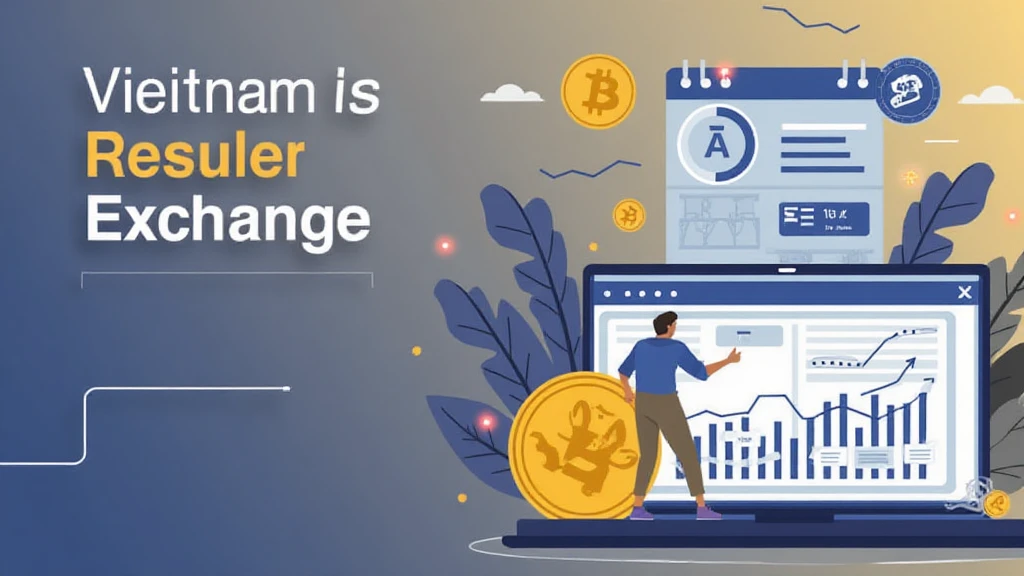Introduction
As the global cryptocurrency landscape evolves, many countries are seeking to implement regulations that promote security and foster innovation. In Vietnam, the crypto market is burgeoning with increasing interest from both local and international investors.
In 2024, the Vietnamese crypto user growth rate reached an impressive 200%, signaling a strong demand for digital assets. However, with this growth comes the responsibility of ensuring regulatory compliance.
One key aspect of this compliance is obtaining the correct Vietnam crypto exchange licenses. Understanding what these licenses entail is crucial for any platform looking to operate within Vietnam’s borders.

Understanding Vietnam’s Regulatory Landscape
Vietnam’s government has taken steps towards establishing a regulatory framework aimed at digital assets. The regulations set forth requirements for licensing and operational transparency for crypto exchanges.
- Authority: The Ministry of Finance (MOF) along with the State Bank of Vietnam (SBV) plays a crucial role in overseeing the issuance of crypto exchange licenses.
- Regulatory Compliance: To operate legally, exchanges must adhere to specific guidelines, which include anti-money laundering (AML) protocols and know-your-customer (KYC) regulations.
- Licensing Process: The process usually involves submitting a thorough application, including background checks and proof of financial stability.
Impact of Licensing on Crypto Exchanges in Vietnam
Licensing brings several benefits that can significantly affect operations and market perception:
- Trust and Credibility: Licensed exchanges often gain greater trust from users, leading to higher engagement and transaction volumes.
- Market Stability: The regulatory framework can help stabilize the market, reducing volatility associated with unregulated trading.
- Access to Banking Services: Licensed exchanges can establish partnerships with banks, improving liquidity and operational efficiency.
Challenges for Crypto Platforms Seeking Licenses
Despite the clear advantages, several challenges exist in obtaining the necessary licenses.
- Compliance Costs: Meeting regulatory requirements can be financially taxing, particularly for startups aiming to enter the competitive market.
- Complexity of Regulations: Navigating through nuanced laws and requirements can be daunting for new players.
- Changing Laws: Vietnam’s regulatory environment is still developing, making it essential for exchanges to remain adaptable.
Future Trends in Vietnam’s Crypto Exchange Landscape
Looking ahead, it is critical to consider potential trends and developments in Vietnam’s crypto exchange domain:
- Increased Regulation: Government regulations are likely to grow more stringent as the market matures.
- Growing User Base: With the growing popularity of digital currencies, platforms can expect a steady influx of new users motivated by investment opportunities.
- Emergence of New Technologies: Technological advancements will enable platforms to enhance security and streamline operations. Tools and practices, like using tiêu chuẩn an ninh blockchain (blockchain security standards), will become requisite.
Conclusion
For cryptocurrency platforms eyeing the burgeoning market in Vietnam, understanding the intricacies of Vietnam crypto exchange licenses is essential. As the regulatory landscape becomes more defined, the ability to navigate compliance will not only ensure operational legitimacy but also enhance user confidence. Vietnam’s crypto future is ripe with opportunities for those who can adapt and innovate in tandem with its regulatory framework.
As you venture into this dynamic market, prioritize obtaining the appropriate licenses to safeguard your platform and users alike. Establishing trust through compliance will be vital to thriving in the competitive landscape of digital assets.
For more insights on licensing, visit hibt.com.







